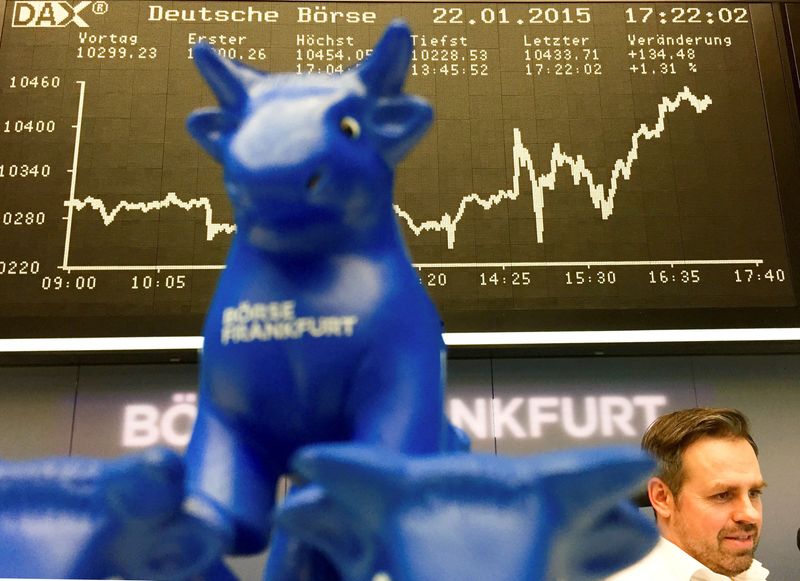This post was originally published on this site

Investing.com – European stock markets traded in a mixed fashion Wednesday, with investors digesting the news that Hong Kong has eased more COVID restrictions as well as assessing the economic headwinds coming in the new year.
At 03:30 ET (08:30 GMT), the DAX index in Germany traded 0.1% lower, the CAC 40 in France traded up 0.1%, while the FTSE 100 in the U.K. climbed 0.8%, catching up the previous session’s gains when the U.K. was on holiday.
European stocks mostly posted gains on Tuesday, helped by the news that China announced it will no longer require inbound travelers to go into quarantine from Jan. 8, a major step towards relaxing its stringent curbs.
Hong Kong followed suit on Wednesday, with Chief Executive John Lee announcing further easing of COVID measures in the city, potentially freeing up trade for European companies in this important region.
However, investors are also digesting the economic reality of the region as the new year approaches, with growth slowing, inflation still at extremely elevated levels, and the European Central Bank embarking on a path of monetary policy tightening.
The euro area faces a “very difficult economic situation” that will test individuals and businesses, European Central Bank Vice President Luis de Guindos said.
“The high inflation rates that we are seeing across Europe are coinciding with an economic slowdown and low growth,” he said in an interview published on the ECB’s website on Tuesday. “It is very important that individuals and businesses alike are prudent and focus on the long term.”
There is little economic data to focus on in the region until German CPI data in early January, and there are no ECB speakers scheduled for a couple of weeks.
Oil prices fell Wednesday, handing back some of the previous session’s gains, as traders digested the COVID situation in China, the largest importer of crude in the world.
Crude prices soared on Tuesday after China relaxed restrictions for inbound travelers, but this optimism has dissipated Wednesday amid concerns the relatively abrupt removal of these curbs will likely bring more disruption to the economy through the first quarter as infections surge, limiting demand for crude.
Additionally, oil refiners in the U.S. are working to resume operations after freezing weather hit a number of facilities across the country.
By 03:30 ET, U.S. crude futures traded 0.8% lower at $78.90 a barrel, while the Brent contract fell 0.7% to $84.12. Both benchmarks rose to their highest in three weeks on Tuesday.
Additionally, gold futures fell 0.6% to $1,811.90/oz, while EUR/USD traded 0.1% higher at 1.0644.

